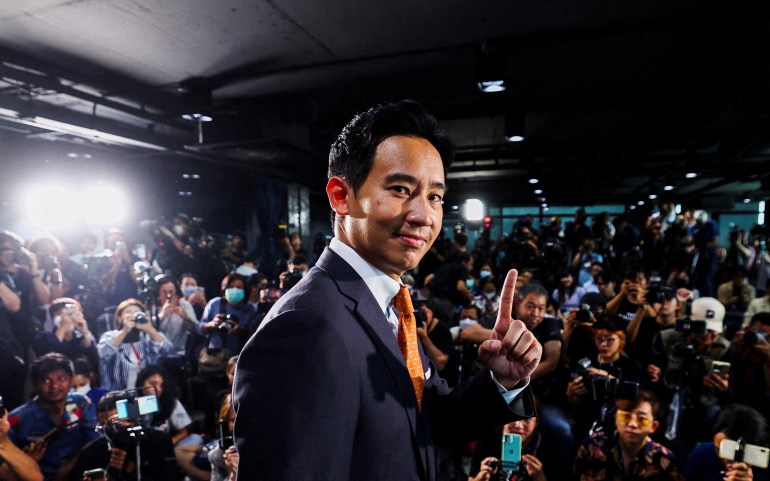Thailand’s opposition Move Forward Party names new leader
Chaithawat Tulathon has been involved in Thailand’s progressive political movement for more than five years.
Thailand’s opposition Move Forward Party (MFP) has named a new leader after Pita Limjaroenrat, who led the party to a stunning election victory in May, was thwarted in his efforts to become premier.
Chaithawat Tulathon, a former political magazine editor, will now head MFP, the party said on Saturday.
The newly elected party leader studied environmental engineering at university and has been involved in Thailand’s progressive political movement for more than five years, co-founding MFP’s predecessor party.
MFP won the most seats in parliament at this year’s election on a wave of youth and urban support over its anti-establishment policies. The party will now lead the opposition after conservative lawmakers and an unelected senate blocked its attempts to form a government.
Pita stepped down as party leader earlier this month amid a host of legal and legislative challenges that many see as part of a pattern by the pro-military and royalist establishment to diminish a new generation of leaders.

In July, he was suspended from parliament over allegations he owned shares in a media company, making him unfit for office. Pita denies this.
“This is a temporary restructure. For legal reasons, Pita Limjaroenrat cannot perform the duty of opposition leader and be an MP in parliament at the moment,” Chaithawat told reporters. “I am willing to step down once Pita resumes the position as an MP in the parliament again.”
Pita will continue on as adviser to the party and manage activities outside parliament, he added.
Earlier this week, the courts banned a prominent MFP supporter, Pannika Wanich, from politics for life over a photo she posted online more than a decade ago that was deemed disrespectful to the monarchy and in breach of ethical standards.
Move Forward has pledged to amend the country’s harsh royal insult law that penalises perceived slights against the monarchy with up to 15 years in prison.
The country’s constitution, drafted during military rule, has “become a potent tool to arbitrarily attack outspoken politicians”, said Sunai Phasuk, senior researcher on Thailand for Human Rights Watch.
“This could easily wipe out members of the opposition who give commentary calling for reforms,” he added.




